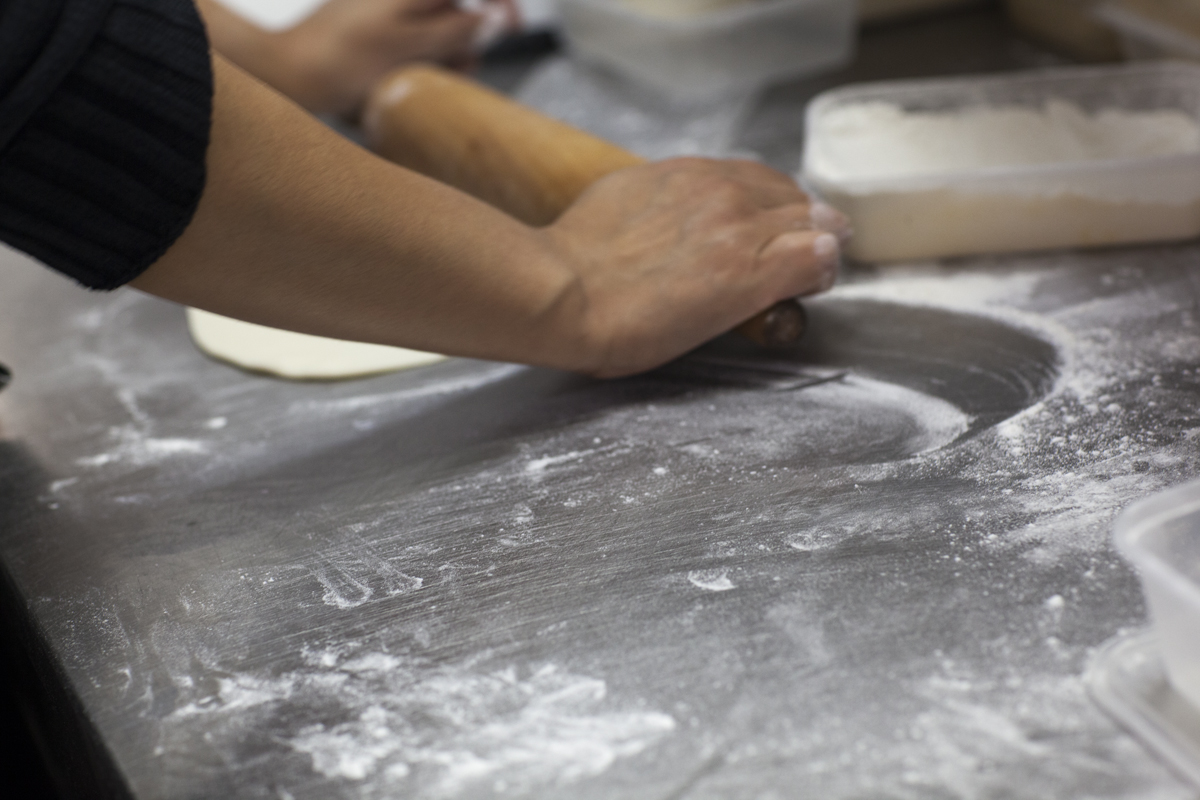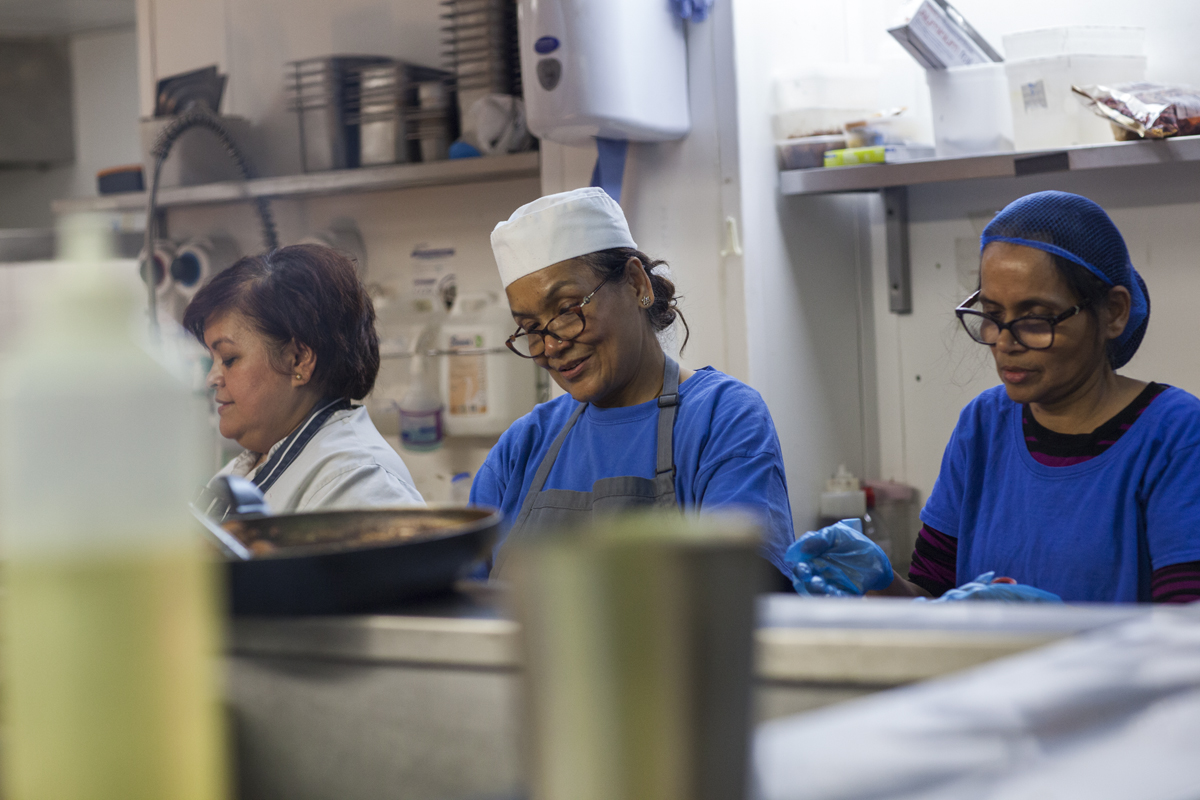Darjeeling Express
Asma Khan
“Everywhere in South Asia, it is women who do the cooking at home. Yet in restaurants and fine dining establishments in Asia and in this country, the majority of chefs are men. What if we became the first all-female Indian restaurant in this country?”
I was born and grew up in Calcutta. I have lived for 30 years in this country but I still say I’m from Calcutta. I spent a lot of time in the kitchen when I was growing up. Huge swaths of biryani were cooked on coal and wood in our driveway. I would wake up to the sounds of pounding masalas outside my window. Ours was just a household that was completely immersed in food.
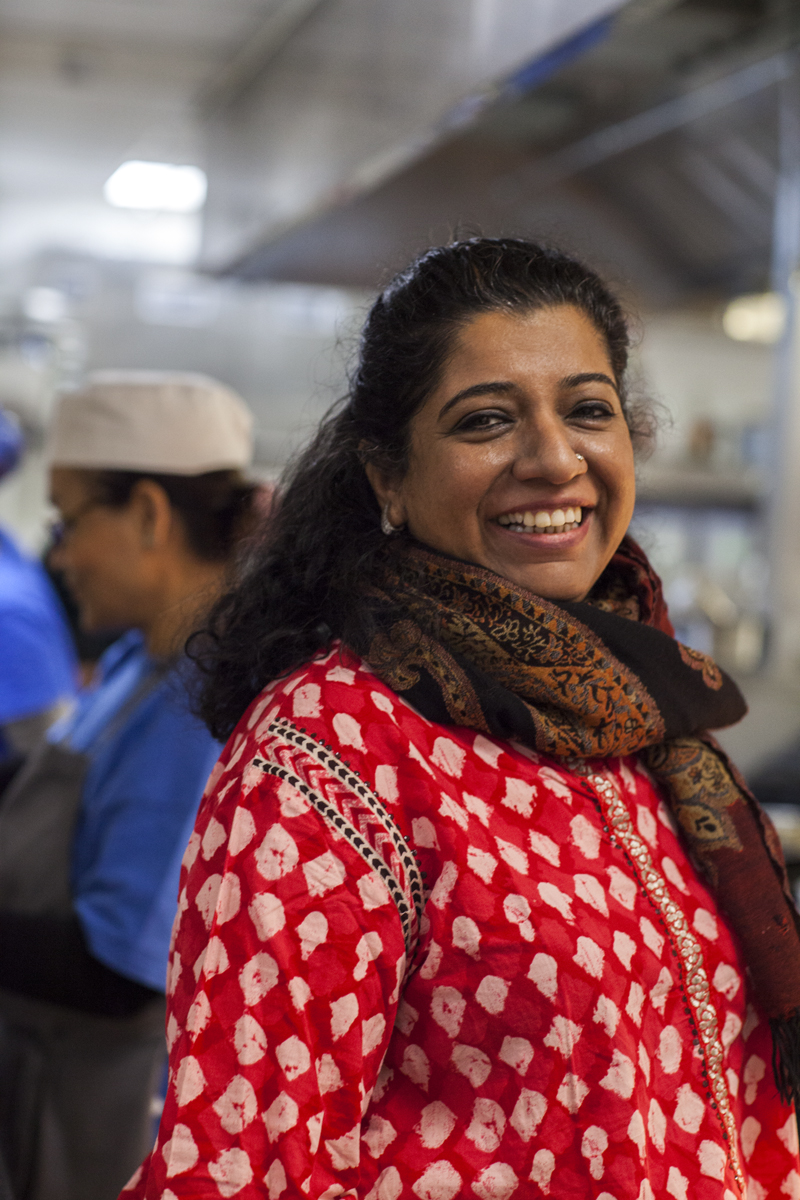
All images courtesy Asma Khan
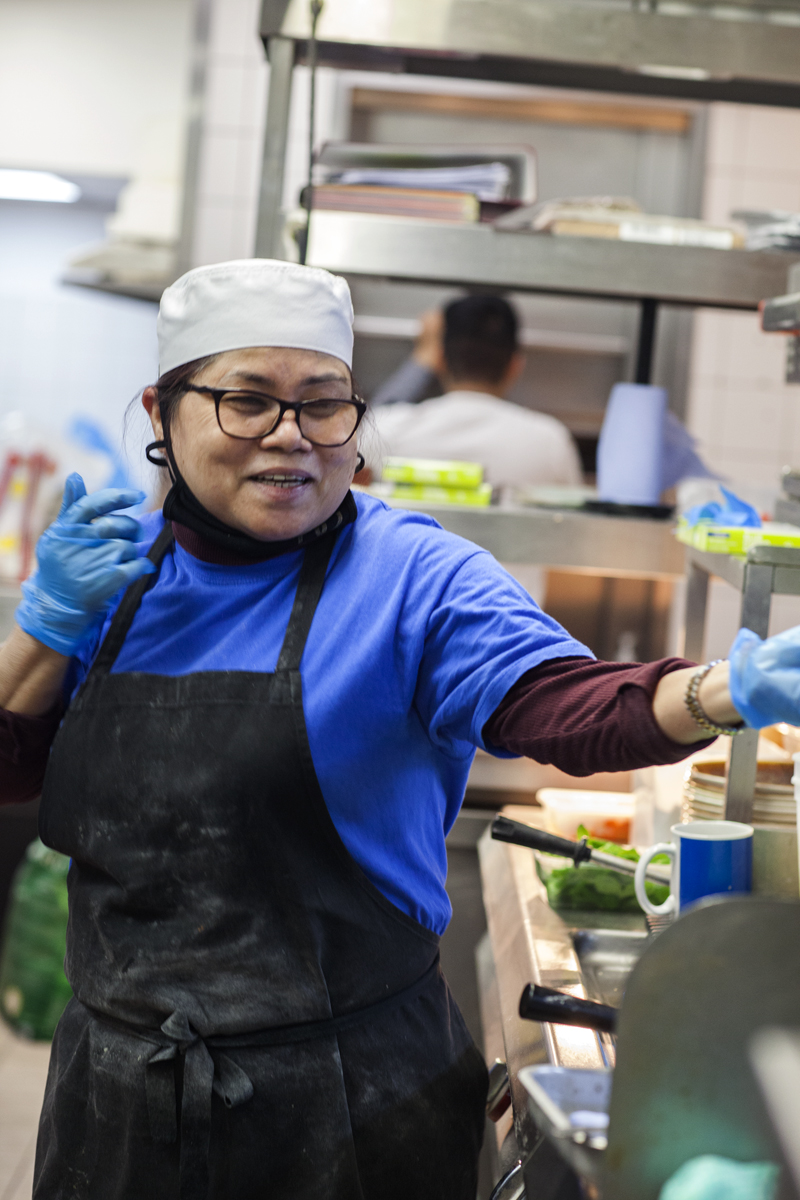
I moved to this country because I met my husband, who was teaching at Cambridge University. When you grow up in a large extended family, the whole place is always busy. You don’t eat a single meal on your own. Because my husband was very busy during his term, he ate all of his meals in college and I ate alone.
This is why in my restaurant today, there are conversations and I tell stories and there’s a warmth and an exchange. There is this need to communicate love and warmth through food, because when that was taken away from me, I pined for it.
I started a supper club from my home because there was no way I could ask anyone for any money. There was no one like me opening a restaurant. I began with a small number of people around my dining table and it grew to 40 people spread out through the house. I still didn’t feel that this was something that was going to get me anywhere.
There was a school opposite my house and I recognised the Asian women coming in who were mainly working as nannies for French families in the neighbourhood. We all became friends and I invited them to eat at my supper club. But they said ‘No no, we will come and help you and make the food.’ Very organically we just started working together and we all shared whatever profits we made when we started doing it commercially.
I did something which was very unusual for that time. I moved to a pub in Soho at a time when pubs didn’t have Indian food. One of the regulars in the pub was the landlord of my first restaurant. When I closed the pub, he said, ‘Your story doesn’t end this way. You should open a restaurant.’ Because he was so lovely, I indulged him by going to see the space. I didn’t know how I was going to do it, and I knew I didn’t have the money to open the restaurant. I stayed up the whole night imagining scenarios of success. What if we became the first all female Indian restaurant in this country? The idea that it would give immigrant women something to aspire to, and would financially make them secure if we were successful was the reason I decided to take that huge risk.
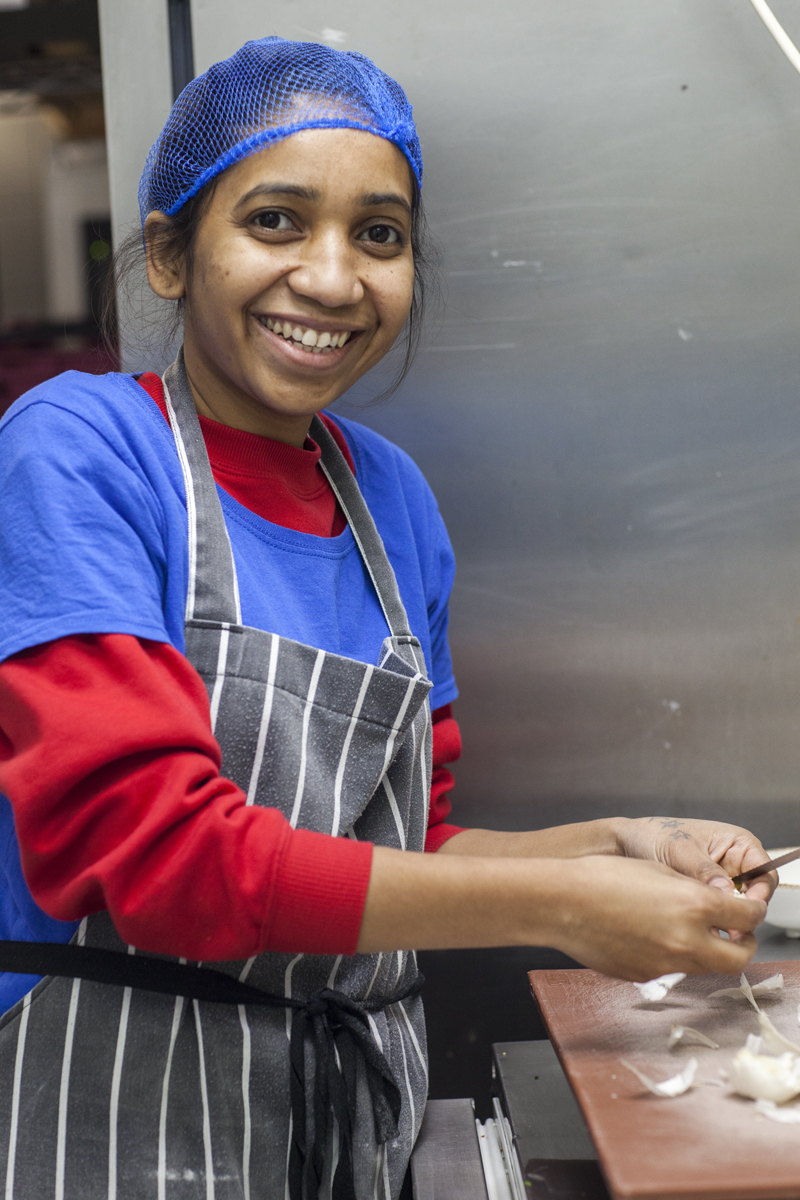
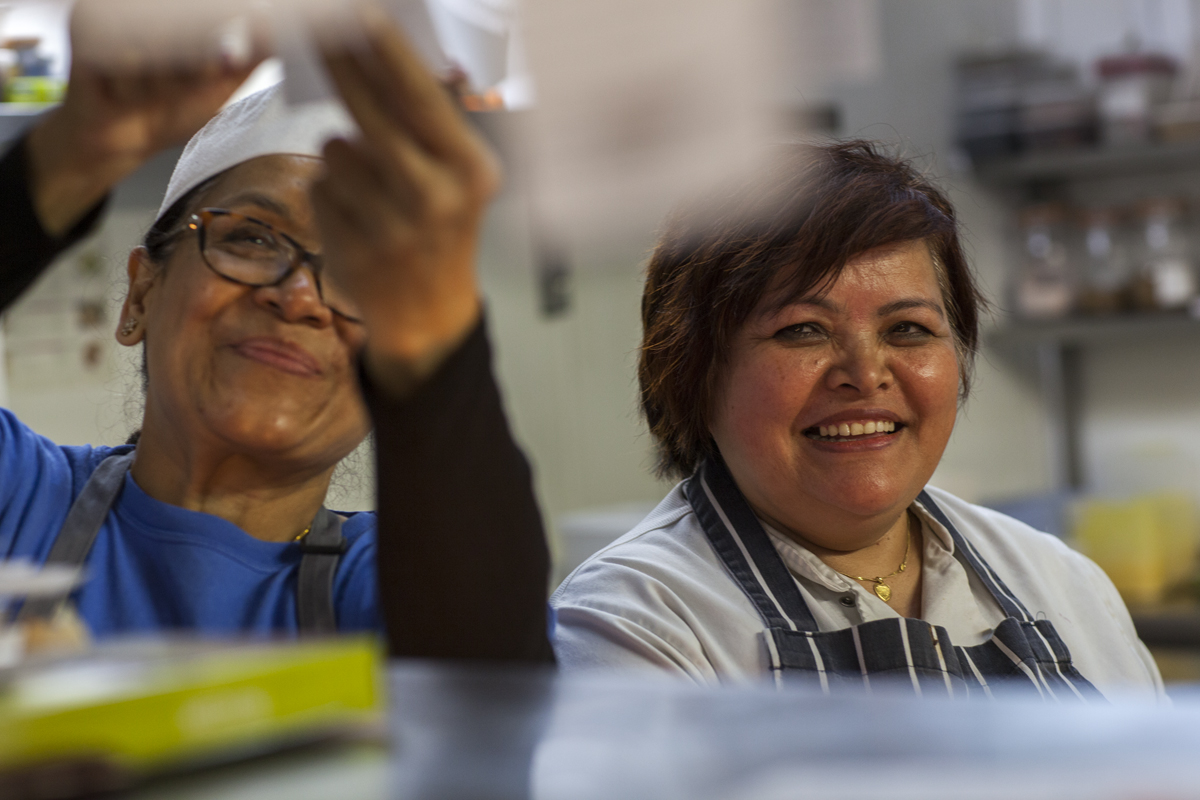
Every Sunday we run a biryani supper club at the restaurant. Biryani is something I have always associated with big family gatherings. This is a classic rice and meat dish that you find all across Central and South Asia. It takes a lot of effort, time and skill, but allows a lot of people to be fed at the same time.
We make the most Persian version of biryani: meat, potatoes, spices in between and rice on top. It’s very mild and aromatic. The first thing that will hit you is the nutmeg and the mace because they are warmer and stronger spices. Then the saffron will come through and then the touch of sweetness that comes from the prunes. The texture of the rice is so soft and the grains are just about holding it together.
Biryani allows me to communicate the core of our feasting culture. People leave not just having eaten a meal, but stepping through a doorway into a culture, into a faith, into my home.


